Water.org at the 8th World Water Forum
Creating progress that lasts through access to affordable financing
Water.org at the 8th World Water Forum - Events:
March 20
- Broadening the access to financial resources to peri-urban, low-income areas and small-scale water services. (9:00-10:30am in ST4)
- Sharing technological, social and financial innovations. (9:00-10:30am in ST5)
- Sustainable market-based mechanisms and national-regional economics and financing. (11:00am-12:30pm in ST4)
March 21
- Safe water: what still needs to be done for the prevention of waterborne diseases and improved WASH facilities? (2:30-4:00pm in ST2)
See below for session details.
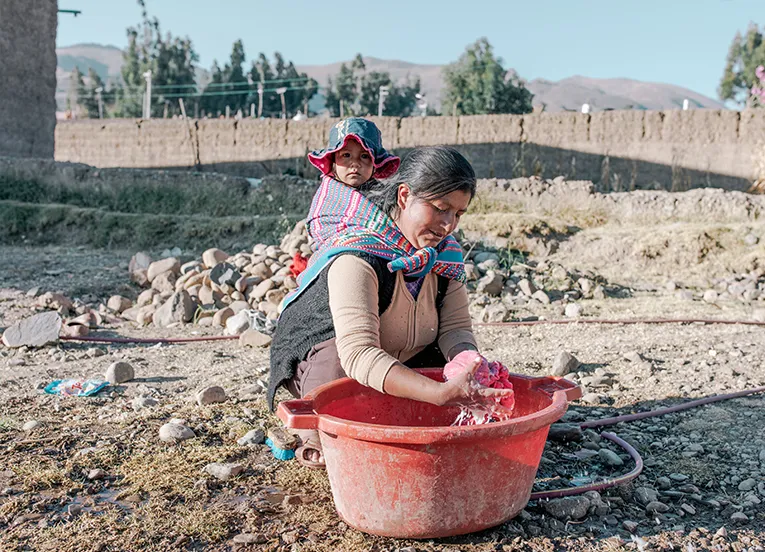
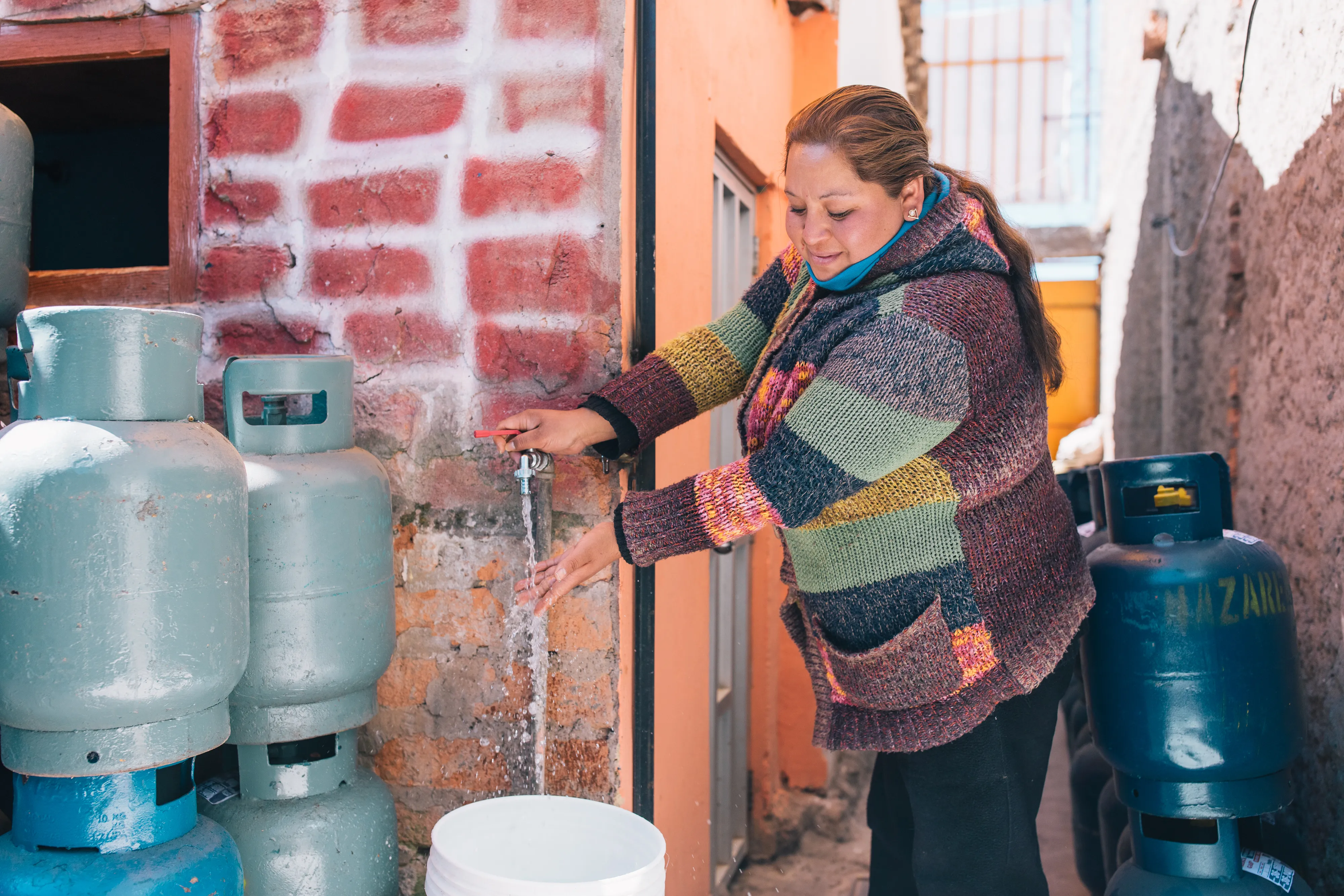
Accelerating impact
Stakeholders across the world are looking for new ways to scale access to water and sanitation. This heightened urgency is in response to the adoption of the Sustainable Development Goal #6, which targets the achievement of universal access to water and sanitation at levels that are not only basic, but also safely managed. In pursuit of these goals, Water.org is collaborating at multiple levels with the right stakeholders to drive the widespread mainstreaming of ideas and influence the large-scale uptake of innovative financing solutions.
Blended finance solutions that address household access to water and sanitation around the world
For more than a decade, Water.org has been harnessing the concept of blended finance and using small philanthropic contributions to catalyze large-scale private investment in water and sanitation access. Its WaterCredit solution uses affordable financing to make household water and toilet solutions a reality, and provides a small glimpse into what can be achieved if these mechanisms are adopted more broadly.
The following data shows we are on the right track.*
- A network of 80 local finance institution partners across 13 countries
- $20.8 million in philanthropic capital leveraged to mobilize more than $722 million in commercial capital
- 2.2 million loans disbursed with a 99% average repayment rate
- More than 10 million people reached
*Data as of December 31, 2017
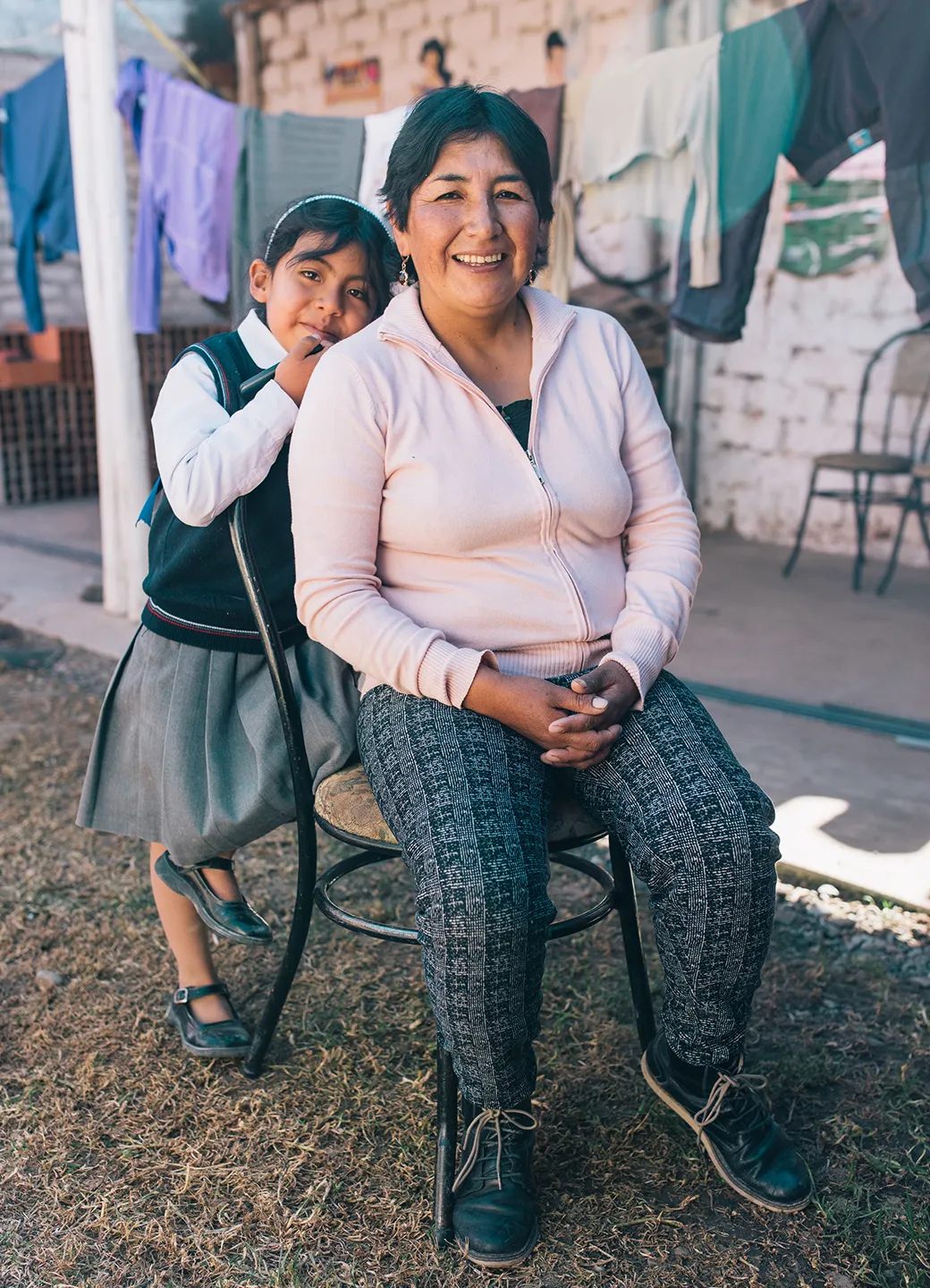
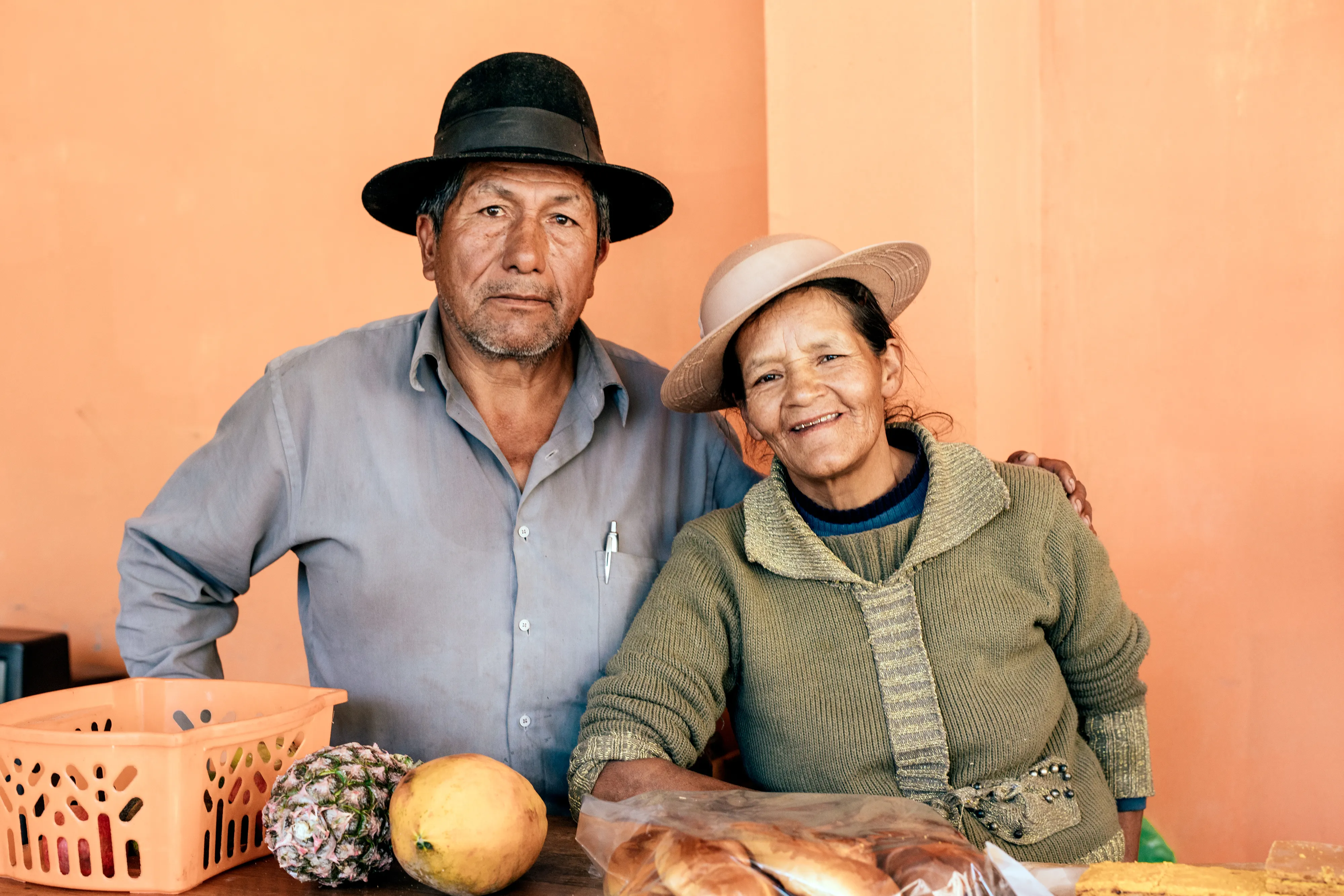
In Brasilia, Water.org is participating in the global conversation around financing for access to water and sanitation.
March 20
- Broadening the access to financial resources to peri-urban, low-income areas and small-scale water services.
- Sharing technological, social and financial innovations.
- Sustainable market-based mechanisms and national-regional economics and financing.
March 21
- Safe water: what still needs to be done for the prevention of waterborne diseases and improved WASH facilities?
Session topic: Broadening the access to financial resources to peri-urban, low-income areas and small-scale water services
This session seeks to identify the best strategies to provide sustainable access to financial resources for water and sanitation service delivery in low-income, peri-urban, small-scale communities. It will focus on three pillars: public sector investment, private sector investment, and the enabling environment needed for successful blended finance.
- March 20
- 9:00 - 10:30am
- Location ST4
Session topic: Sustainable market-based mechanisms and national-regional economics and financing
The session will discuss the implementation of market-based mechanisms to ensure financial sustainability and inclusiveness of water and sanitation services. The first half will present a mosaic of experiences in the financing of water projects and water infrastructure around the globe. At the end, a panel of experts will address questions regarding the feasibility and appropriateness of such mechanisms vis-a-vis specific economic and social contexts.
- March 20
- 11:00am - 12:30pm
- Location ST4
Session topic: Sharing technological, social and financial innovations
Innovations can be the future key to today’s water challenges. This session is meant to highlight some of the most promising innovations in the area of water and to stimulate the exchange of good practices between peers. An important element of that session is that not only technological innovations will be discussed but also social and financial innovations in the area of water are equally important for truly sustainable solutions. How can small-scale innovations be brought to scale and how can innovations of a larger scale be further replicated in other geographies of the world?
- March 20
- 9:00 - 10:30am
- Location ST5
Session topic: Safe water - what still needs to be done for the prevention of waterborne diseases and improved WASH facilities?
This session recognizes that infrastructure alone will not ensure the health and well-being for all people. This session seeks to 1). identify who is left out and why; 2). listen to them: the youth, women, differently-abled, elderly, and otherwise excluded; and 3). develop innovative, participatory solutions that can respond to these very different needs by context and challenge.
- March 21
- 2:30 - 4:00pm
- Location ST2
Scaling access to household water and sanitation in Latin America
Although Latin America dramatically increased access to safe water and sanitation during the Millennium Development Goals, deep inequalities in access still exist. Regionally, 224 million people lack access to safely managed water services and 40 million people lack access to improved sanitation.
Water.org has been catalyzing financial innovations in Latin America since 2014.** To-date, Water.org has reached more than 840,000 people in the region and mobilized $249 million in capital. Private capital mobilization in Peru has demonstrated significant success spurring entry into Brazil and Mexico. In developing our strategic plan for 2018-2022, Water.org has assessed the opportunity for Latin America and charted an exciting course for growth and scale.
**Joint Monitoring Programme, 2015, Latin America and the Caribbean region.
In the next five years, Water.org plans on reaching an additional four million people to mobilize $1.1 billion in investment in household water and sanitation access.
- Latin America
- Brazil
- Peru
- Mexico
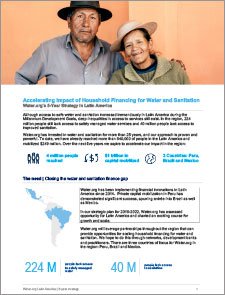
Water.org Latin America 5 Year Strategy This document highlight's Water.org's plans to increase its impact Latin America through 2022.
Our approach and continued progress toward access to safe water and sanitation through affordable financing
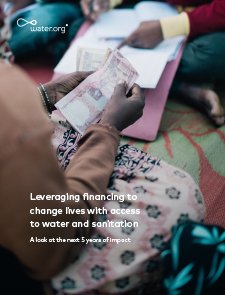
Executive Summary Water.org Strategic Plan 2018-2022 "Leveraging financing to change lives with access to water and sanitation" is an overview of Water.org’s five-year strategic plan for increasing access to affordable financing for water and sanitation in the era of the Sustainable Development Goals.
As the water sector looks to meet global goals related to water and sanitation, Water.org assessed the opportunities and challenges that lay ahead and carefully considered how it can best contribute without losing sight of its overarching goal of bringing affordable financing options for water and sanitation access to scale as a means of achieving universal access to water and sanitation in our lifetime. The result is a strategic plan that looks not only to expand our core strengths but also to deepen our connectivity and collaboration with a host of influencers around the world to deepen understanding and explore innovative approaches that will collectively address the water and sanitation crisis. (August 2017)
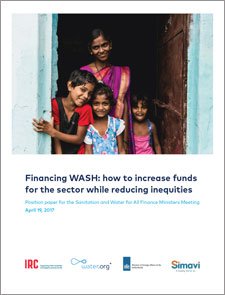
Financing SDG 6 Position Paper - "Financing WASH: how to increase funds for the sector while reducing inequities: Position paper for the Sanitation and Water for All Finance Ministers Meeting, April 20, 2017."
Water.org collaborated with Netherlands-based IRC to highlight issues critical to achieving sustainable access to water and sanitation, including: strengthening the enabling environment; utilizing micro and blended finance to their full potential; and resolving inequities in financing allocation. These recommendations support Ministers of Finance as they develop effective financing plans for their country, furthering progress toward achieving Sustainable Development Goal 6. (April 2017)
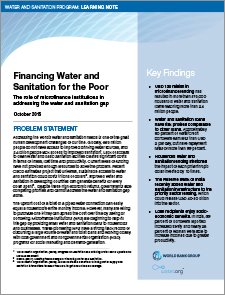
Global Learning Note - “Financing Sanitation for the Poor: The role of microfinance institutions in addressing the water and sanitation gap”
Water and sanitation financing shows strong promise of supporting the ambitious Sustainable Development Goal 6 to end open defecation and ensure basic access to water and safe sanitation by 2030. Water.org and the Water and Sanitation Program of the World Bank’s Water Global Practice spotlight the positive impacts microfinance for water and sanitation provides households, microfinance institutions, governments, and low-income borrowers and their families. (October 2015)
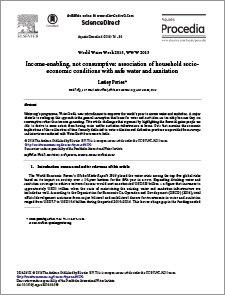
WSS loans as income-enabling - “Income-enabling, Not Consumptive: Association of Household Socio-economic Conditions with Safe Water and Sanitation”
In some countries, Water.org has observed that financial institutions are less interested in offering microloans for water and sanitation because they are perceived to be more risky than income-generating loans. That perception does not consider how household access to water and sanitation assets enable household incomes to rise through increased availability of productive time. This paper, originally presented at 2015 Stockholm World Water Week, draws upon Water.org data to highlight the how water and sanitation microloans indirectly affect household income. (July 2016)
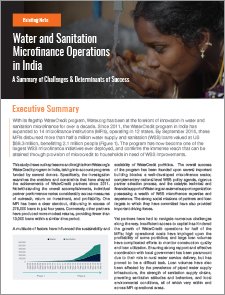
Impact Assessment - “Water and Sanitation Microfinance Operations in India: An Assessment of Challenges & Determinants of Success”
The role microfinance can play in improving access to safe water supply and sanitation among low-income populations is gaining attention, especially in light of conversations around financing the achievement of Sustainable Development Goal 6. Despite this increased attention, knowledge gaps remain regarding factors that hinder and facilitate the scale and sustainability of water and sanitation microfinance operations. This study examines the enablers and constraints that have shaped the performance of Water.org partner organizations in India between 2011 and 2015. (October 2016)
Give the gift of safe water today.
Donate